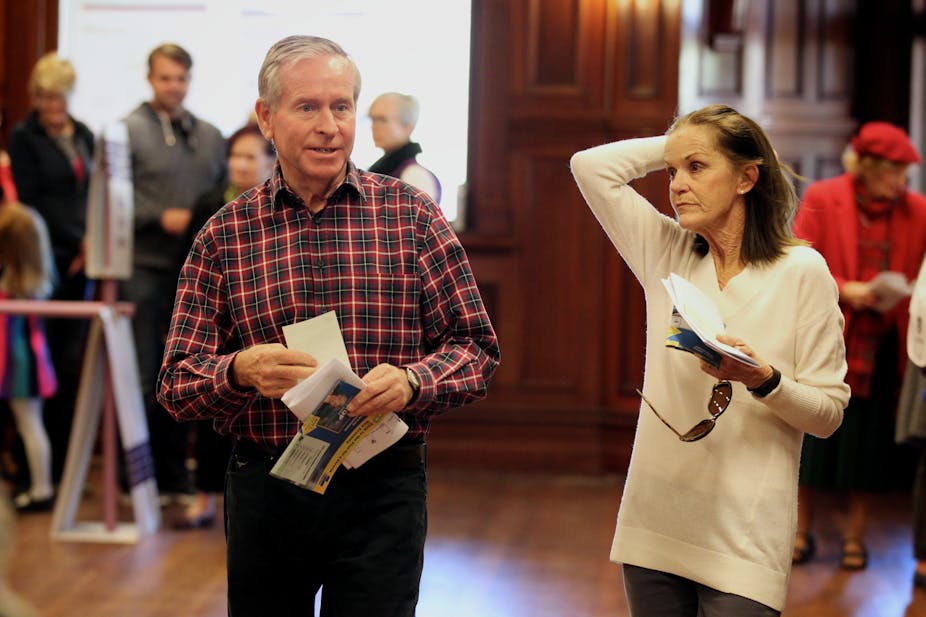Malcolm Turnbull’s plebiscite on same-sex marriage has run into new problems, with the Australian Electoral Commission (AEC) recommending it should be delayed until next year and a Liberal premier saying parliament should decide the issue.
Western Australian Premier Colin Barnett, facing a difficult election on March 11, 2017, doesn’t want the plebiscite anywhere near his state poll. “I would prefer that a plebiscite on same-sex marriage did not overlap the state election. They should be as separate as possible,” he said at the weekend.
“In any case, it is my view that the matter should be decided by federal parliament, without the need for a plebiscite. I am concerned the issue will become divisive within the community,” he said.
The delay and the Liberal division is manna for Labor, which is strongly opposed to the plebiscite and urges a parliamentary vote.
Before the election Turnbull held out the prospect of the vote being held before Christmas although he gave himself an out by saying it would be as soon as practicable.
A spokeswoman for Turnbull said on Sunday that AEC advice to Special Minister of State Scott Ryan last week “strongly recommended” against holding the plebiscite this year.
She said the government’s commitment to have a plebiscite as soon as practicable “has not changed”.
“The mechanics of the plebiscite, including the specific question and also the timing, are subject to the usual cabinet processes. No decisions have as yet been made,” she said.
A delay until at least February and Barnett’s strong words further complicate the way ahead for Turnbull. The longer the debate stretches out, the more it will deflect the government’s attention from other matters.
After the new parliament begins next week, Labor plans to move for the issue to be settled there, which the government will oppose.
The ALP has not yet decided its position on legislation to set up a plebiscite, with likely divisions over this in the party’s ranks.
But the prospect of Labor opposing that legislation is likely to have increased, given the split in the marriage equality movement. While that movement is against a plebiscite, some within it would support one if that were the only way to get change in the foreseeable future, while others would prefer to wait out the situation until a parliamentary vote could be obtained, however long that took.
Australian Marriage Equality said on Sunday that if a plebiscite was being imposed it was “vital the question, process, and timing is fair and delivered in consultation with the LGBTI community and all political parties”.
In particular, “one immediate way the government can provide confidence in the process is by listening to the 10,000 Australians who have signed our petition to ensure no public funding is provided to either campaign, and guarantee the opponent’s campaign tactics won’t be fuelled by taxpayer dollars,” it said in a statement.
The plebiscite arose out of a long debate in the Coalition partyroom last year, shortly before Tony Abbott was deposed as leader. Turnbull was critical of the idea at the time, but embraced the plebiscite as he sought support for his leadership bid from conservatives in the Liberal Party.
Opposition Leader Bill Shorten said on Sunday that Turnbull’s backflip on marriage equality had shown how weak he was. “He has long supported a vote in parliament, but to appease the hard right of the Liberal Party, he’s wasting A$160 million on a plebiscite that won’t even bind MPs to its result.”

